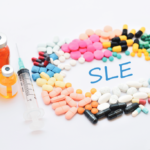Fava et al. investigated longitudinal autoantibody profiles in patients with lupus nephritis (LN) to define serological biomarkers of histologic class. They found that baseline levels of anti-C1q and anti-double-stranded DNA antibodies may serve as noninvasive biomarkers of proliferative LN and anti-C1q antibodies may predict complete response.






